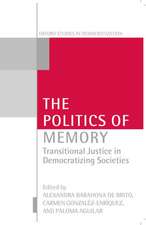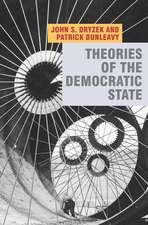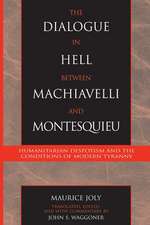The Arab Spring, Civil Society, and Innovative Activism
Editat de Cenap Çakmaken Limba Engleză Hardback – 9 dec 2016
Preț: 733.46 lei
Preț vechi: 894.46 lei
-18% Nou
Puncte Express: 1100
Preț estimativ în valută:
140.34€ • 146.93$ • 116.13£
140.34€ • 146.93$ • 116.13£
Carte tipărită la comandă
Livrare economică 05-19 aprilie
Preluare comenzi: 021 569.72.76
Specificații
ISBN-13: 9781137571762
ISBN-10: 1137571764
Pagini: 200
Ilustrații: XIII, 257 p. 4 illus. in color.
Dimensiuni: 148 x 210 x 22 mm
Greutate: 0.61 kg
Ediția:1st ed. 2017
Editura: Palgrave Macmillan US
Colecția Palgrave Macmillan
Locul publicării:New York, United States
ISBN-10: 1137571764
Pagini: 200
Ilustrații: XIII, 257 p. 4 illus. in color.
Dimensiuni: 148 x 210 x 22 mm
Greutate: 0.61 kg
Ediția:1st ed. 2017
Editura: Palgrave Macmillan US
Colecția Palgrave Macmillan
Locul publicării:New York, United States
Cuprins
1. Introduction .- 2. "Dogs of Wall Street, Let Us Alone": Graffiti in Cold War Baghdad, 1953 .- 3. When Pundits Fail: "We Are All Khalid Said" and the Challenge of Democratizing Egypt .- 4. Civil Society and Political Change in Contemporary Egypt .- 5. Social Media and the Arab Spring in Bahrain: From Mobilization to Confrontation .- 6. The Middle Eastern Gender Gap: The State of Female Political Participation Before, During and After the 'Arab Spring' .- 7. The Arab Spring through a Libyan Prism: Contagion, Cleavages and Adverse Transition .- 8. Re-imagining the 'state' of Syria during the first year of the uprising (2011-2012) .- 9. Rooted in History: The Politics of Middle Eastern and North African Soccer .- 10. Civil State in the post Arab Spring Countries: Tunisia, Egypt and Libya .- 11. Conclusion.
Notă biografică
Cenap Çakmak is Professor of International Law and Politics at Eskişehir Osmangazi University, Turkey, and Senior Researcher at Wise Men Center for Strategic Research, Turkey. He previously conducted research at the TMC Asser Institute, Netherlands, and the Max Planck Institute for Comparative Public Law and International Law, Germany, and is currently Visiting Scholar at the Raoul Wallenberg Institute, Sweden. His most recent publications include Post-Conflict Syrian State and Nation Building (2015), Islam: A Worldwide Encyclopedia (2016), and A Brief History of International Criminal Law (2016).
Textul de pe ultima copertă
This book investigates the role of civil society groups in the making of the Arab Spring and under what conditions they attained their goals. Democracy and recognition of human rights and fundamental freedoms seem to be the main drives of civil and grassroots movements in the Arab Spring countries, but it is essential to identify when they find it suitable to take such extreme action as taking to the streets in an attempt to take down repressive regimes. It is also important to investigate what methods they relied on in their action and how they challenged the state and the government. The focused case-studies in this volume show that civil society has certain limitations in its actions. They also challenge the commonly held assumption that the Arab world does not have a strong and rich civil society tradition. However, for lasting success and consolidation of democracy, something more than civil society action is needed, in particular, a strong organized opposition and democratic culture.
Caracteristici
Examines the motivation behind the actions of civil groups during the Arab Spring Highlights the methods used by civil groups to challenge the state and the government, using case studies to suggest the limits of civilian action Challenges the view of strong civil tradition within the Arab world, suggests steps required for the lasting success of democracy
















